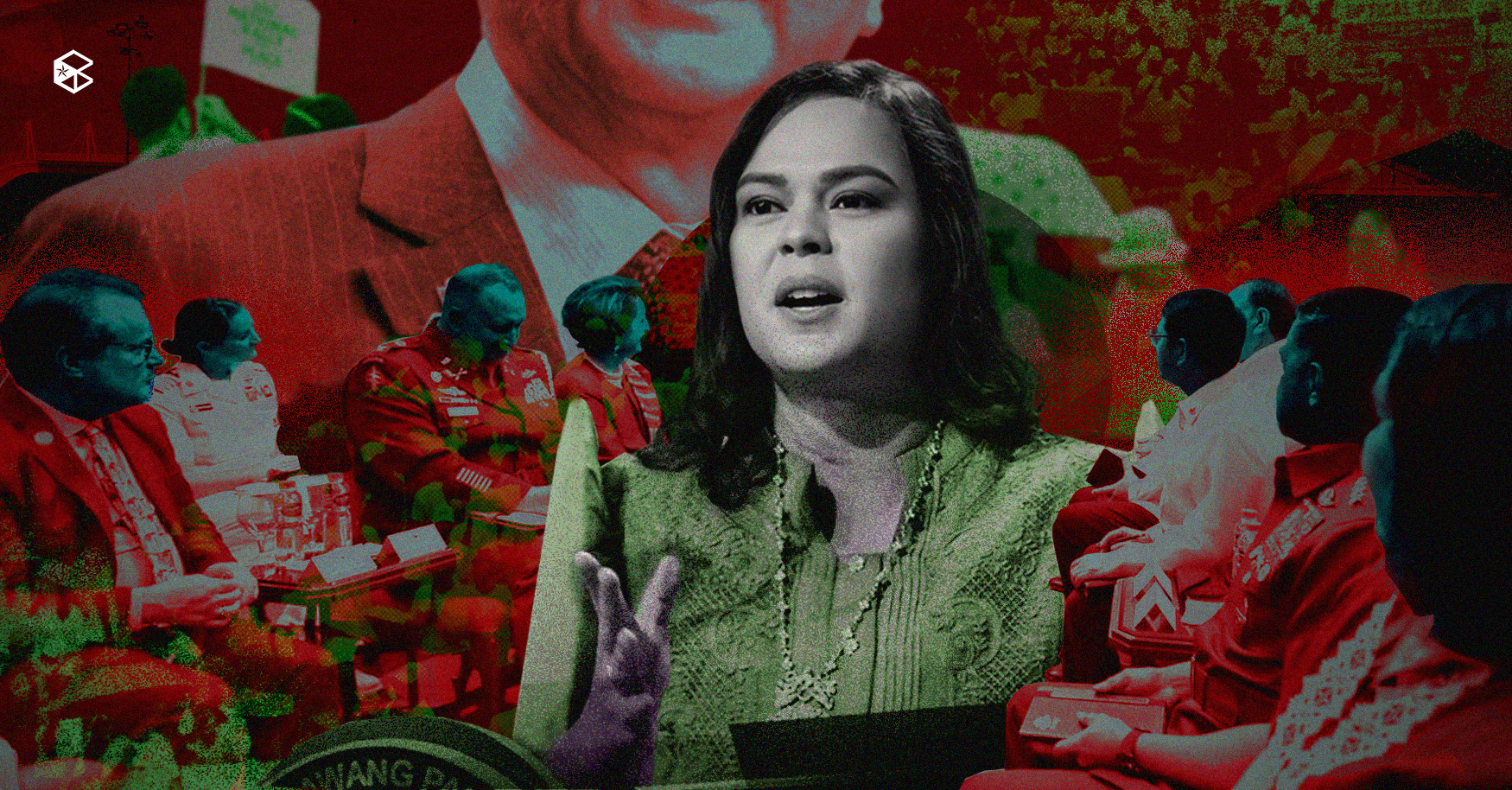On Dec. 30, President Bongbong Marcos Jr. (PBBM) issued Executive Order (EO) 81, thereafter publicized on Jan. 3, which reorganized the National Security Council (NSC), removing the position of Vice President from the composition and executive committee to ensure it “uphold and protect the national security and sovereignty of the country,” therefore excluding VP Sara Duterte’s presence in the council.
Past presidents of the Philippines were also omitted, which removed Joseph “Erap” Estrada, Gloria Macapagal-Arroyo (GMA) an ally of Duterte, and Rodrigo Duterte, father of VP Duterte from its composition. While deputy speakers for Luzon, Visayas, and Mindanao were replaced by three deputy speakers to be designated by the speaker.
In addition, the Governor of the Bangko Sentral ng Pilipinas may also be invited to participate in the NSC.
What is the National Security Council?
The NSC serves as the lead agency of the government for coordinating the formulation of policies, relating to or with implications on national security, acting as an advising body to the president for concerns on the country’s security, as well as giving guidance to the intelligence community.
For the newly reorganized version, the executive committee is now composed of the President as chairperson, Senate President, Speaker of the House of Representatives, National Security Advisers, Secretaries of the Department of Foreign Affairs, Department of National Defense, and Department of the Interior and Local Government as well as other members or advisers that the President may designate.
Previously, VP Duterte had made a threatening remark during a Zoom media briefing on Nov. 23, of having an assassin prepared for PBBM, First Lady Liza Araneta-Marcos, and House Speaker Martin Romualdez if ever she is killed.
The following day, National Security Adviser Eduardo Año, who had also served as a cabinet official during Duterte’s administration, responded that, “Any and all threats against the President’s life will be investigated and deemed a matter of national security,”.
This prompted VP Duterte to write an open letter to Año on Nov. 25, demanding an explanation for not being invited to any NSC meeting since they assumed office in June 2022.
As of writing, the Dutertes are yet to comment on their exclusion from NSC.
Duterte's allies immediately expressed violent reaction against the reorganization. On Jan. 4, the former President’s spokesperson, Salvador Panelo, said: “It smacks of dirty politics—another brazen measure to diminish the political star power of VP Sara.”
Malacañang then fired back, with Executive Secretary Lucas Bersamin telling Panelo that he had no moral authority to question the decision after advocating for then-Vice President Leni Robredo to be excluded from the NSC.
Bersamin also emphasized that the President can choose the people he listens to or he would listen to.
On national security concern
China has been the major concern for the nation’s security with their constant terrorization of the West Philippines Sea (WPS), ignoring the 2016 arbitral ruling that favored the Philippines’ claim on the territory.
Since taking office, VP Duterte has avoided speaking against China and gave no comment regarding the harassment of Philippine vessels on the WPS.
Furthermore, upon being called out for her silence, during a speech at the House of Representatives on Aug. 28, 2024, she explained: “While silence on specific harassment issues may be perceived as a lack of response, it is essential to recognize that such decisions are made following established mandates and particular responsibilities of relevant agencies.”
During the Duterte administration, the WPS conflict had not moved forward, rather they had fostered close ties with China. This puts into question the loyalty of their service— is it for the Filipino people or to satisfy the means of China?
Meanwhile, the NSC, since Marcos took office, had yet to show an actual response to the WPS problem, but they have the time to respond to VP Duterte’s baseless threats against the President as a concern for national security.
Filipinos should take into account that the leaders they elect have the authority to reform laws and create policies that must be for the better of the country, not just for one individual’s preference. The nation should be more critical and demand policies that create tangible changes to the lives of the citizens and the nation’s security.


